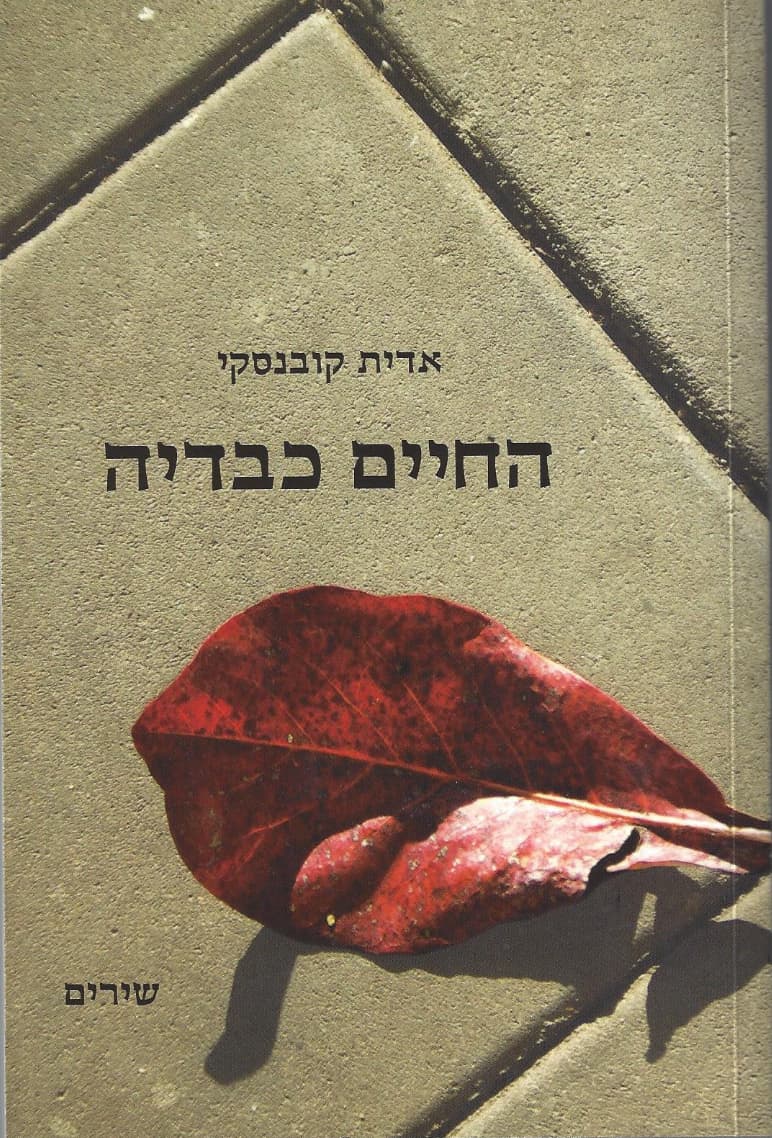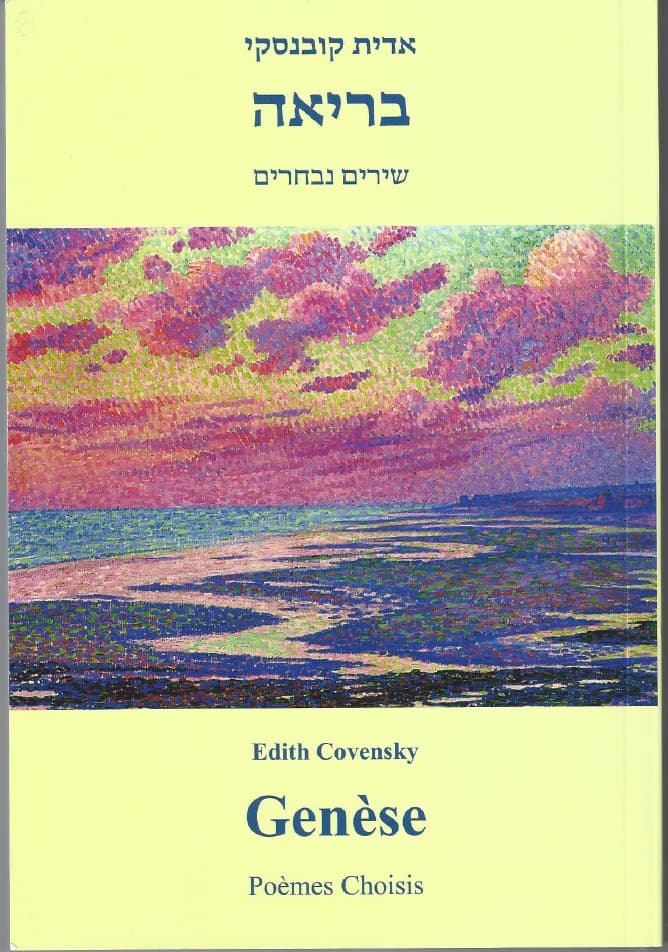Covensky inducted into Hebrew Writers Association
Edith Covensky, a celebrated poet and Senior Lecturer in Hebrew in the Department of Classical and Modern Languages, Literatures and Cultures, was recently inducted into the Hebrew Writers Association in Israel. Covensky writes poetry in Hebrew, but her work has been translated into several languages: English, Arabic, French and Romanian. In celebration of this important recognition, we asked Covensky to tell us about the Writers Association and her prolific work as a poet.
Q: Will you tell us about the Hebrew Writers Association?
A: It's indeed an honor and privilege to become a member of the Hebrew Writers Association and to be included in the Society of Israeli writers. For me, it's a compounded privilege since I do not reside in Israel. It's a great feeling to be included and become part of this distant (geographically) literary world, yet, certainly not removed in spirit. The Hebrew language binds me to this Union, although I don't think that my poetry can be considered "pure" Israeli or Hebrew poetry. Other influences have, indeed, penetrated my poems, as numerous literary critics have noted. Professor Michael Giordano in his brilliant and most insightful introduction to my new book of selected poems translated into French, points out the close affinity of my poetry to the French Symbolist poets. I myself, often, consider my writings as being French poetry written in Hebrew. I do believe that the committee of the Hebrew Writers Association who accepted me, welcomed these foreign influences taking, undoubtedly, pride in the fact (as I do), that such an ancient language as Hebrew can transmit the hues and depth of French Symbolist poetry.
privilege since I do not reside in Israel. It's a great feeling to be included and become part of this distant (geographically) literary world, yet, certainly not removed in spirit. The Hebrew language binds me to this Union, although I don't think that my poetry can be considered "pure" Israeli or Hebrew poetry. Other influences have, indeed, penetrated my poems, as numerous literary critics have noted. Professor Michael Giordano in his brilliant and most insightful introduction to my new book of selected poems translated into French, points out the close affinity of my poetry to the French Symbolist poets. I myself, often, consider my writings as being French poetry written in Hebrew. I do believe that the committee of the Hebrew Writers Association who accepted me, welcomed these foreign influences taking, undoubtedly, pride in the fact (as I do), that such an ancient language as Hebrew can transmit the hues and depth of French Symbolist poetry.
Q: What inspires your poetry?
A: To answer your question: "What inspires your poetry", I would say that inspiration might not apply so much to my case. Inspiration, I think, often, emanates from an exterior force which can come and go. Regarding my writings which have turned out to be quite consistent for over thirty years with thirty-three poetry books published to date, I feel that there must be something much deeper than inspiration. it's, perhaps, an inner need, a desire to restore an interior balance, to feel complete as I, indeed, do when I write a poem. The source or motive for writing remains a puzzle to me, an enigma that drives me from poem to poem, and from book to book. Will I ever decipher it? I am doubtful. On a lighter note, I also enjoy the "playing" with words. I remember years ago standing in a vestibule with some friends yet feeling "out of the group", pretending to listen to them while imagining a surge of words and their infinite potential. I was immensely delighted to realize, on the spot, that I may form with words endless combination. I felt at that moment that, as the French say: "Je suis sauvee" or "I am saved." Saved from what? I didn't exactly know, and I still don't.
Q: I understand that a singer has put one of your poems to music. How does your poetry resonate in the world? Do you see your poetry as being musical?
A: Yes, a fine Israeli singer, Chani Dinur, composed a beautiful melody to one of my poems from a recent book entitled: Life as Fiction. The title of the poem and song is: "Niggun", in Hebrew, which means "A Chant." Niggun, however, has a more spiritful and deeper connotation. One might say that it's a soulful title. In any event, Chani Dinur picked this poem to be the source or inspiration for her melody. Her "musical choreography" totally fits the words of my poem. I am not sure, if I can call my poetry, musical, but I believe that each poem has its own inner musicality that holds it together. I always read my poems aloud before placing them in the manuscript. I want to hear them.
 Q: What are your upcoming projects?
Q: What are your upcoming projects?
A: As for my next projects: I am presently working on a new manuscript entitled: Many Waters. I intend to complete it by the end of this academic year. Another manuscript called: A Woman at the Window is ready to be recorded at our Technology Center. I work with Dean Western who is doing a great job in providing the technical support for our sessions. He is professional, kind, sensitive and patient. Another project which I presented to Michael Giordano and for which he wrote an insightful and detailed preface is: Portrait of A Poet, a compilation of selected poems in the first part (Alias), and in the second part, newly written poems (Footsteps in the Sand.) I would like to publish this volume in a tri-lingual edition: Hebrew-French-English.
I believe that each language displays the poetry in a different cultural light, a different sound, and a richness which broadens its scope.